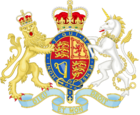Social:War Crimes Act 1991
| Act of Parliament | |
 | |
| Long title | An Act to confer jurisdiction on United Kingdom courts in respect of certain grave violations of the laws and customs of war committed in German-held territory during the Second World War; and for connected purposes. |
|---|---|
| Citation | 1991 c. 13 |
| Territorial extent | United Kingdom |
| Dates | |
| Royal assent | 9 May 1991 |
Status: Amended | |
| Text of the War Crimes Act 1991 as in force today (including any amendments) within the United Kingdom, from legislation.gov.uk. | |
The War Crimes Act 1991 is an Act of the Parliament of the United Kingdom. It confers jurisdiction on courts in the United Kingdom to try people for war crimes committed in Nazi Germany or German-occupied territory during the Second World War by people who were not British citizens at the time, but have since become British citizens or residents. The legislation was enacted, as there then were no provisions to allow the extradition of British residents, or naturalised citizens to face trial for war crimes in third countries.[1] Other countries, such as the United States have used civil, rather than criminal proceedings, to resolve this issue by revoking citizenship of suspects, facilitating their deportation.[2]
The Act was rejected by the House of Lords, and so it was passed with the authority of only the House of Commons, under the provisions of the Parliament Acts 1911 and 1949. The Parliament Acts are rarely invoked: the War Crimes Act was only the fourth statute since 1911 enacted under their provisions, and the first since the Parliament Act 1949.[3] The War Crimes Act remains the only time that the Parliament Acts were invoked by a Conservative government.
To date only one person, Anthony Sawoniuk, has been convicted under the Act. In 1999, he was sentenced to life imprisonment for murder during his involvement with the collaborationist Belarusian Auxiliary Police. He died in jail in 2005.
The first person to be charged, however, was fellow Belarusian officer, Symon Serafinowicz Sr. His trial commenced in 1997 for the murder of three unnamed Jews committed as during his role as Police chief in Mir. At this stage, he was in the advanced stages of dementia and was declared medically unfit. He died later that year.
References
- ↑ Prosecution prepares war crimes trial BBC News, news.bbc.co.uk, 8 February 1999 (accessed 10 January 2009)
- ↑ Unhappy record on Nazi suspects BBC News, news.bbc.co.uk, 8 February 1999 (accessed 10 January 2009).
- ↑ "Parliament Acts: House of Lords written question – answered on 8th April 2010.". Parliamentary Debates (Hansard). House of Lords. 8 April 2010. col. 462-463. https://www.theyworkforyou.com/wrans/?id=2010-04-08a.462.0.
External links
- Text of the War Crimes Act 1991 as in force today (including any amendments) within the United Kingdom, from legislation.gov.uk.

